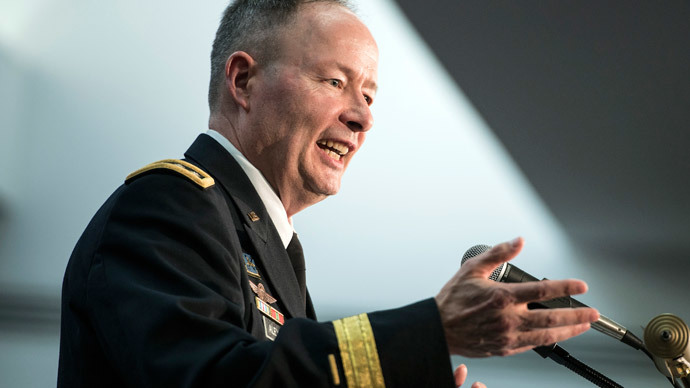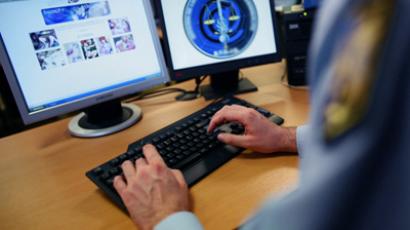Wall Street gets former NSA chief to help banks create ‘cyber war council’

The top trade group on Wall Street wants the White House to assemble a “cyber war council,” according to a new report, as America’s banks continue to brace for hackers to hit their computer systems with an unprecedented attack.
Bloomberg News reported on Tuesday this week that its journalists have viewed an internal document from the Securities Industry and Financial Markets Association, or Simfa, calling for the United States government to create such a council “to stave off terrorist attacks that could trigger financial panic by temporarily wiping out account balances” by way of a cyberattack previously unseen on US servers.
According to Bloomberg journalist Carter Dougherty, the unpublished Simfa draft proposes that executives and deputy-level representatives from no fewer than eight US agencies join forces to ensure that the banking industry can withstand a severe cyberattack.
“We are concerned that the industry may not have the capabilities that we would like to effectively defend against this newer form of potential attack, the capability that we would like to stop such an attack once commenced from spreading to other financial institutions, or the capability we would like of effectively recovering if an initial attack is followed by waves of follow-on attacks,” Dougherty quotes from the document, reportedly dated June 27.
Such an attack, Simfa suggests, could occur “in the near-medium term,” result in “account balances and books and records being converted to zeros” and be “difficult and slow” to recover from.
“The systemic consequences could well be devastating for the economy as the resulting loss of confidence in the security of individual and corporate savings and assets could trigger widespread runs on financial institutions that likely would extend well beyond the directly impacted banks, securities firms and asset managers,” the document reads.
In order to counter such a strike, Simfa has reportedly suggested that government officers from the likes of the Treasury Department, National Security Agency and the Department of Homeland Security join forces with Wall Street in preparation.
Already, Dougherty reported, Simfa has retained Gen. Keith Alexander, the recently retired head of the NSA, as well as Michael Chertoff, the former director of DHS. Recently, it was reported that Alexander was requesting $1 million a month to provide consulting services in his post-NSA career.
A spokesperson for Simfa declined to comment to Bloomberg about the document, which the news agency failed to publish with this week’s report, but did say that the Wall Street group “is doing everything possible to help the industry prepare for and defend against cyberattacks.”
Another letter signed recently by Simfa was published to the web this week, however, and reveals that the trade group is officially endorsing a cybersecurity bill slated to be discussed by the US Senate Intelligence Committee on Tuesday.
The potential legislation — the Cybersecurity Information Sharing Act, or CISA — “further strengthens the ability of the private sector and the federal government to work together to develop a more effective information sharing framework to respond to cyber threats,” reads the letter from Monday this week signed by Simfa President and Ceo Kenneth E. Bentsen, Jr., as well as the Financial Services Roundtable and the American Bankers Association.
“The threat of cyberattacks is a clear and present danger to our industry and to other critical infrastructure providers that we and the nation as a whole rely upon,”the letter reads in part.
Privacy advocates are largely opposed to that act, however, and have said that codifying a program to share digital data between the government and private sector would put the sensitive information pertaining to millions of Americans at risk.














